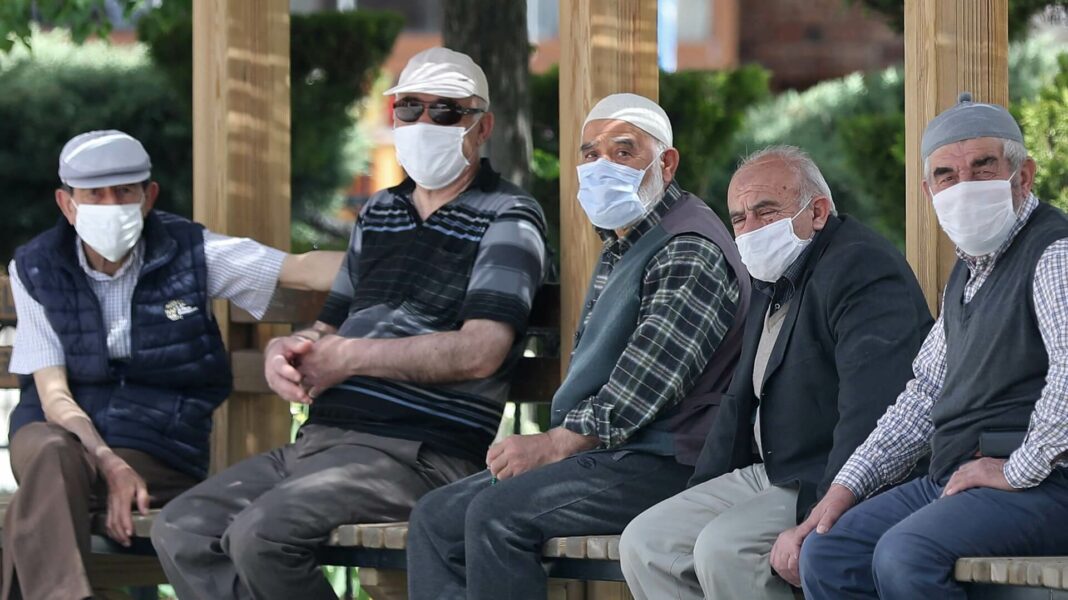Turkey’s ruling Justice and Development Party sent a bill to parliament on Tuesday that would raise the monthly minimum pension by 25 percent, to 12,500 lira ($378), sparking criticism, anger and disappointment among pensioners, labor unions and the main opposition leader for failing to meet their expectations, the state-run Anadolu news agency reported.
With the proposed hike, the minimum pension continues to remain below the monthly minimum wage of 17,002 lira ($513) despite calls from labor unions to match the lowest pension to the minimum wage.
AKP group chairman Abdullah Güler announced the hike in the minimum pension at a news conference in parliament on Tuesday, where he informed the press about the content of the bill, which aims strengthen fair taxation and includes a broader austerity package for the country’s economic recovery.
Güler said the minimum pension would increase to 12,500 lira from 10,000 lira with no increase for retirees earning more.
Although the country’s inflation stands over 71 percent, the government announced last month that it has no plans to make an interim increase in the monthly minimum wage and the pensions despite calls from opposition parties and labor unions to this effect.
Güler said 3.7 million of Turkey’s 16.1 million pensioners receive the minimum monthly pension and that the increase in their retirement payments will bring an additional cost of some 33 billion lira ($997.4 million) to Turkey’s 2024 budget.
Since the AKP and its allies have a majority of seats in parliament, the 53-article bill is expected to pass.
‘Betrayal of pensioners’
Main opposition Republican People’s Party (CHP) leader Özgür Özel, who has been calling on the government to at least match the minimum pension to the monthly minimum wage, expressed frustration over the planned hike in the minimum pension.
Speaking at his party’s group meeting on Tuesday, Özel said if the government refuses to give pensioners and minimum wage earners a decent payment, it will have to face early elections.
Turkey is scheduled to hold its next parliamentary elections in 2028, but the talk of an early election frequently comes to the nation’s agenda due to the government’s failure to put the economy back on track, leaving citizens with difficulties in even meeting their basic needs due to the high cost of living.
Özel said the hike in the minimum pension is far from being satisfactory, considering the constantly rising prices in the country.
He said while pensioners were able to buy 25 kilograms of ground beef for 10,000 lira when it was first set six months ago, they can only buy 16 kilograms of ground beef with 12,500 lira today.
“This is not a hike but a betrayal of pensioners,” Özel said.
Zeynel Abidin Ergen, chairman of the All Pensioners’ Union, accused the AKP government of trying to offer a cosmetic solution to the longstanding problem of low retirement payments.
“This [hike] is just a window dressing. We don’t accept it,” he told Turkish media, adding that it makes no difference for pensioners to get either 10,000 lira or 12,500 lira in the poor economic situation in the country.
Ergen said a 233 percent hike the government wants to make in the overseas departure fee, also included in the same bill, shows the real level of inflation in the country.
Turkey’s inflation stood over 71 percent in June, according to official figures, but an independent group of economics, ENAG, say it was over 113 percent in June.
Ergen said his union demands the matching of the minimum pension to the lowest monthly salary of a civil servant and that pensioners will continue to suffer from economic problems as long as this step is not taken.
Following the government’s announcement, members of the Confederation of Public Sector Trade Unions (KESK) held demonstrations across several provinces including Diyarbakır, Hatay and Antalya in protest of the proposed hike in the minimum pension, with the motto, “We will not give into poverty.”
They accused the government of condemning pensioners to poverty and manipulating the inflation figures to mask the real scale of the economic deterioration in the country.
Over the past several years Turkey has been suffering from a deteriorating economy, with high inflation and unemployment as well as a poor human rights record. The lira has been the worst performer in emerging markets for several years running due largely to economic and monetary policy concerns under the government of Erdoğan.
Corporate tax
Meanwhile, the proposed legislation also foresees the imposition of a minimum corporate tax on large multinationals.
A minimum 15 percent corporate tax will be imposed on multinational companies that have more than 750 million euros ($817.58 million) in annual consolidated revenue, according to the draft bill, confirming earlier comments by Finance Minister Mehmet Şimşek.
The bill also imposes a 10 percent minimum corporate tax on local companies.
